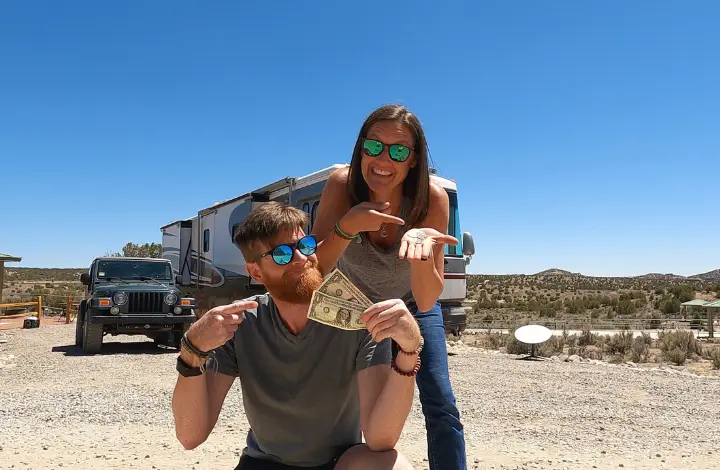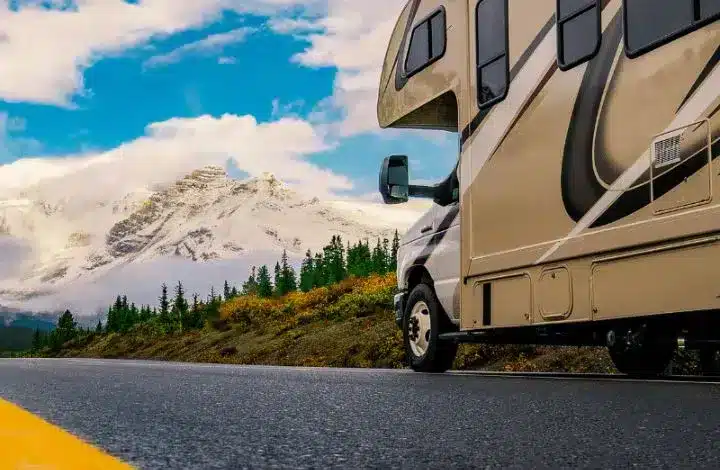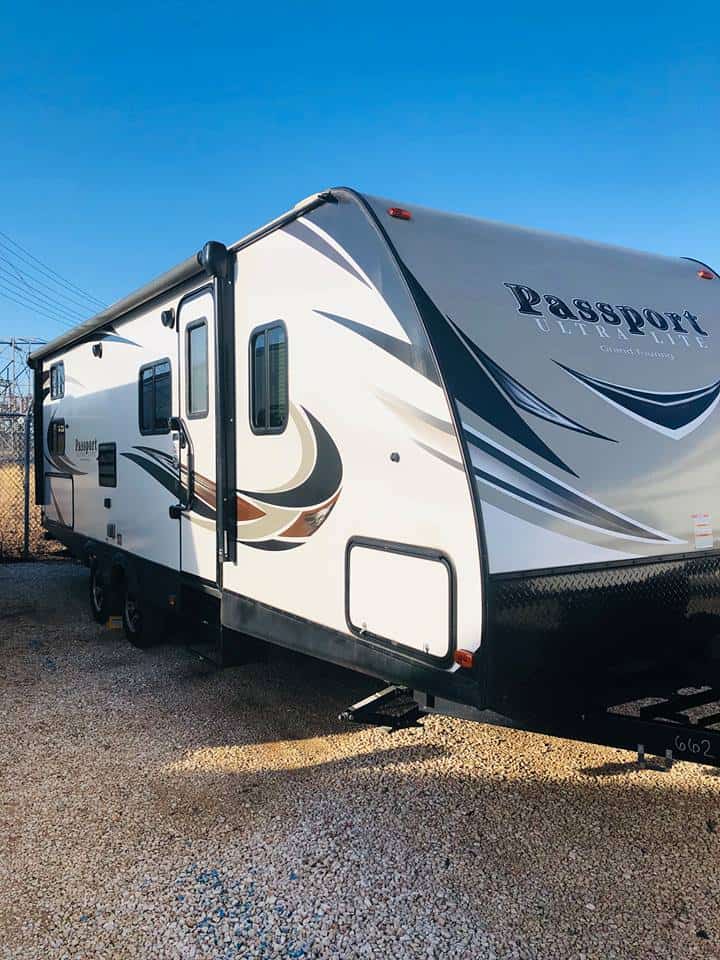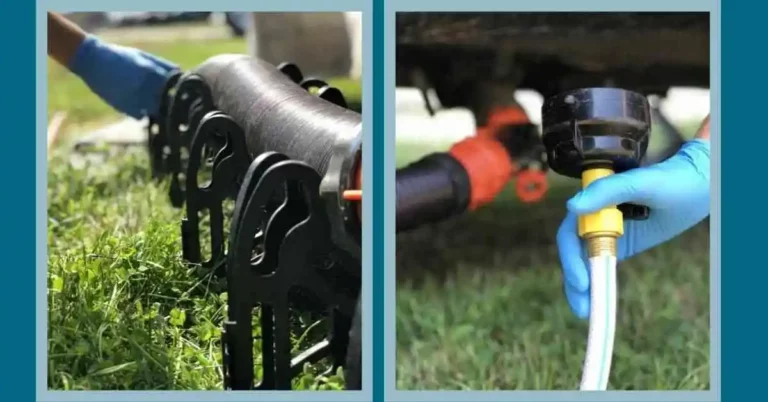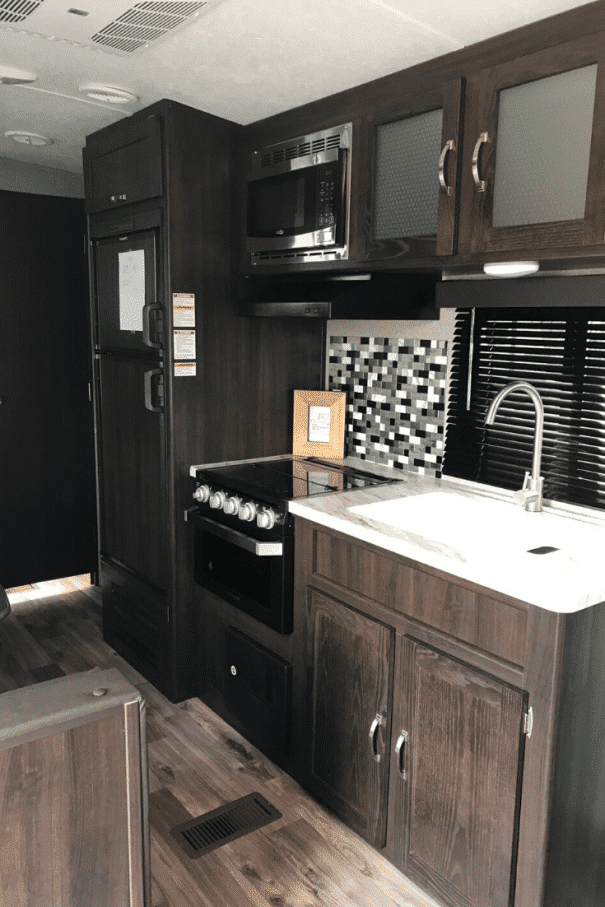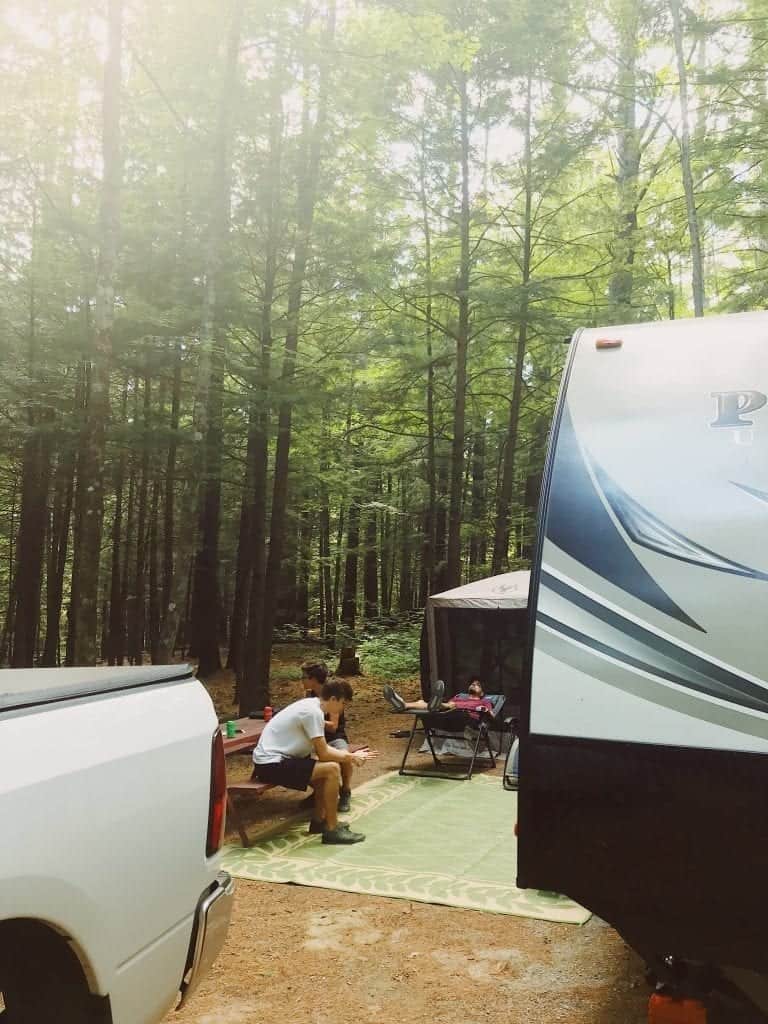Tiny Living in an RV: The Top 7 Hidden Benefits
Many people, myself included, choose RV life for the freedom, adventure, and spontaneity it affords. We chase the possibilities of the open road ahead and seek to be closer to the great outdoors so we can play in nature. Now, after living in an RV for over 8 years, I can honestly say that tiny living has given me so many gifts beyond the freedom I initially sought when making this major life decision.
What Is Tiny Living?
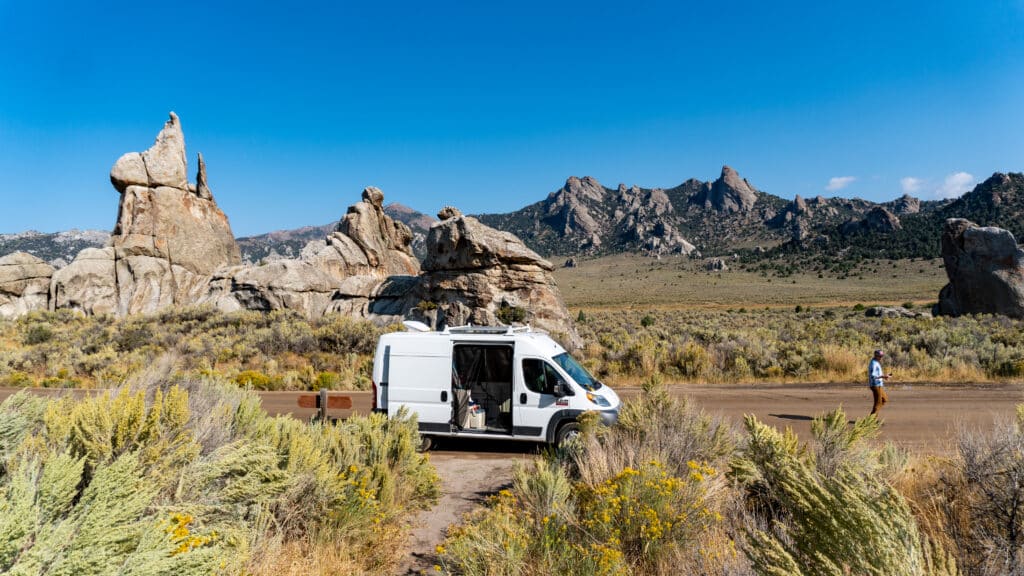
First, what are tiny homes? To me, living in a tiny house means any small dwelling, whether or not it’s a mobile home. Some would say anything under 500 square feet qualifies as “tiny”.
It could be an RV, a campervan, a school bus, a boat, a yurt, or even a treehouse. Many of the people who choose these alternative dwellings seem to be adventurers and nature lovers of some sort.
And while RV life has certainly delivered adventure and access to the outdoors, it surprisingly has also given me so much more.
Top Benefits of Tiny Living in an RV
If you’re thinking about living tiny, it may stir up some fears in you. But I hope this round-up of the top seven hidden benefits of tiny living in an RV will help illustrate some of the perks you may not have yet considered.
Benefit #1: The Ultimate in Decluttering
While crammed spaces are often complained about as a “con” of living in an RV, I actually think it’s a benefit. The small indoor space forces you to enjoy the ultimate positive side of living tiny. The flip side of the con is that RV living forces you to keep only the things you need or love. There’s literally no room for non-essential clutter.
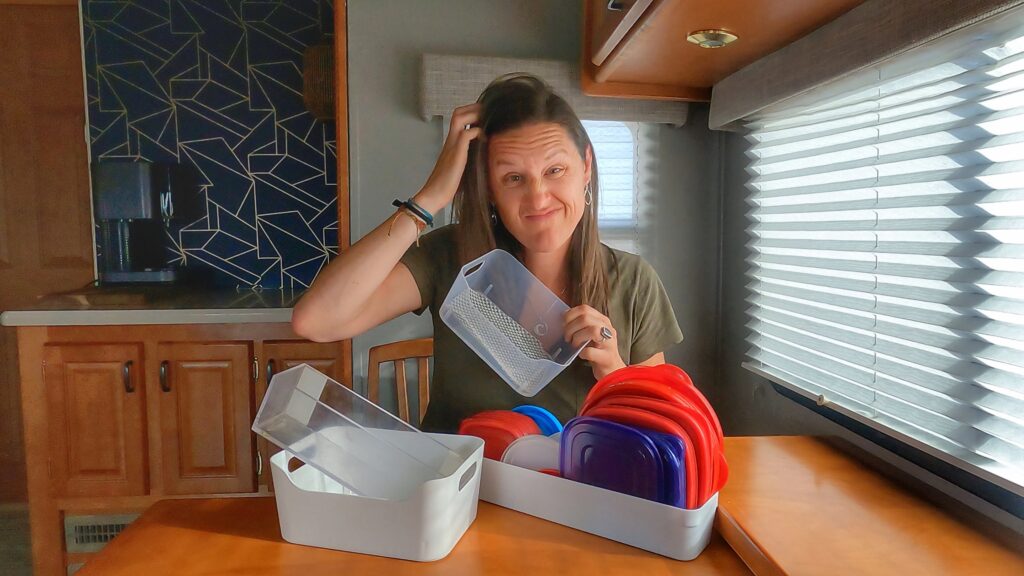
THE ULTIMATE IN MARIE KONDO DECLUTTERING
We empty each storage bay, cupboard, and cabinet in our RV at least once a quarter, and take anything we no longer need or use to goodwill.
It’s all about learning to let go instead of desperately hanging on to all the “stuff” you possibly can to give you some warped sense of peace or comfort.
Living in a tiny space can inspire an ongoing “tidying up” of your life. And once you’ve really learned to let go and have pared down your possessions, you’ll experience how little you need to be happy.
Related Reading: One Joy of RV Living is Learning to Let Go
Benefit #2: Conscientious Consumption
Once you’ve found happiness with having less, you become an ultra-conscientious consumer. I find that I think more seriously about each purchase because I don’t want to be weighed down by stuff.
We also have a rule that if we want to bring something new into the RV, something else must be taken out of the RV.
Over time, I’ve definitely adopted a mindset of experiences over things. Much like the famous RV YouTubers Less Junk < More Journey, we’d rather have experiences together as a family, than have “more junk.”
And the extra benefit of buying less stuff is that you’ll save lots of money. Who doesn’t love that?
Benefit #3: Financial Freedom
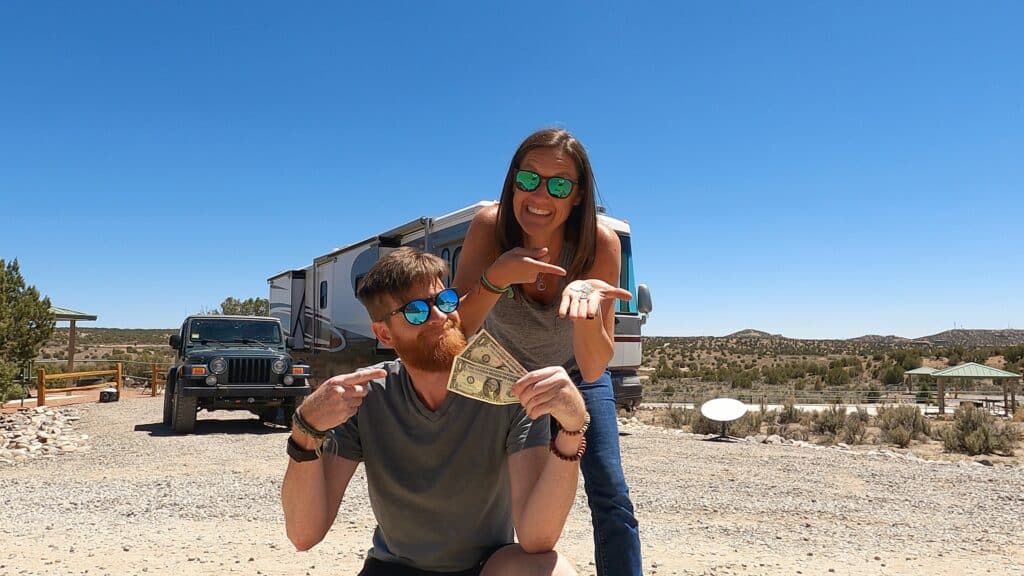
I recognize that there are RVs on the market today that cost more than what I paid for my first “real” house. So let me acknowledge that there are many ways to do RV life. It is possible to spend a lot of money and travel in a very expensive way.
Prior full-time RVers, Todd and Julie, share some of the financial side of RV living during their fast-paced life on the road. The short story is, the expenses can add up quick when a family of five is on the road full-time.
Related Reading: The Cost of Full-Time RV Living: One Family’s Journey
That being said, it is possible for RV life to be your ticket to financial freedom. It was for me!
If you choose an RV that you can pay cash for, you won’t have any monthly payments to worry about, and you won’t be paying interest to the bank every month.
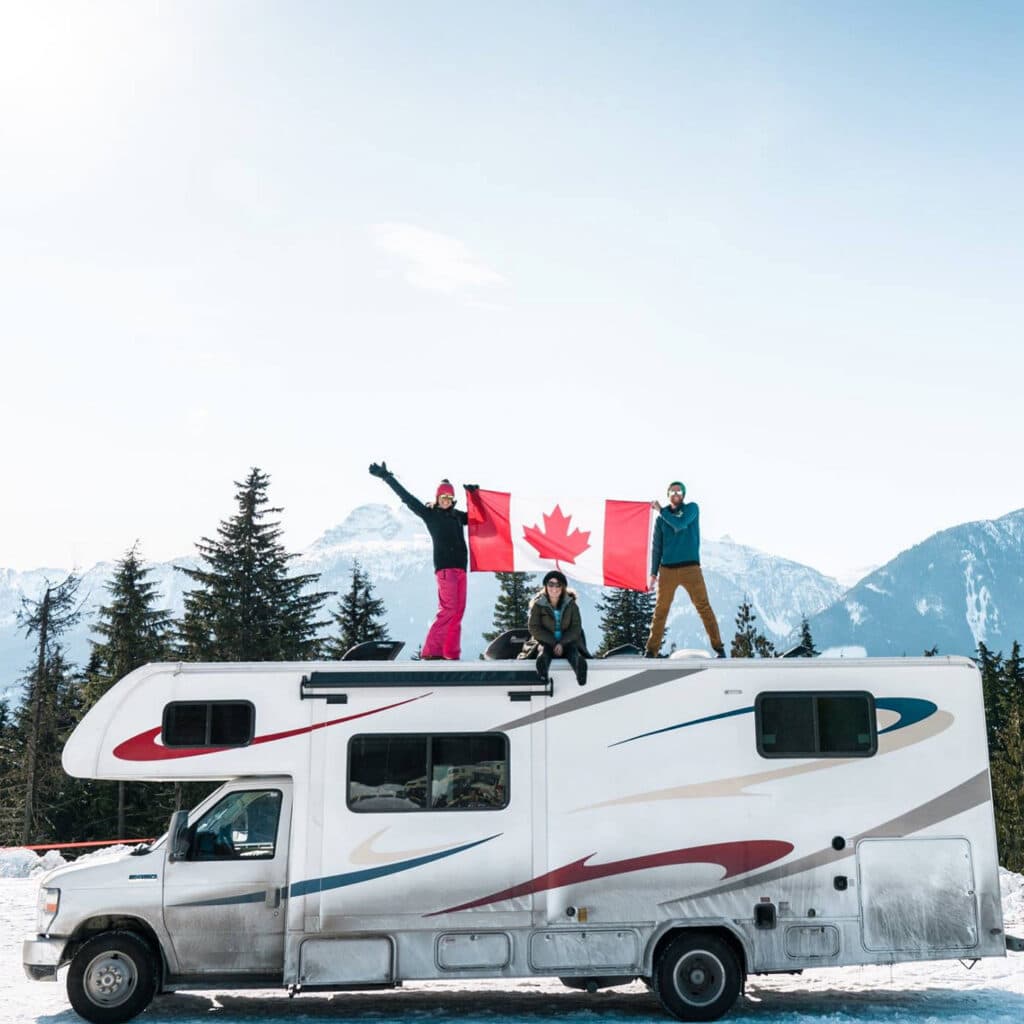
CHOOSE WISELY WHEN BUYING YOUR TINY HOME
This is certainly the fastest way to save money. If you don’t have enough savings to buy an RV with cash, you can still take the path toward financial freedom. Start by selecting a rig that requires a small monthly payment.
If financial freedom is your goal, try to get that monthly payment as low as you can. The highest monthly payment I have paid on an RV has been $300.
Compared to renting anywhere in the US, this is pennies. Plus, your payments go toward owning the RV (which you can then later sell). That’s a nice benefit compared to renting a house, for which you will have no financial return at the end of the lease.
Without changing jobs or my income, I sold my house, paid cash for my RV, and couldn’t believe how much liquidity I still had. What a relief to be unburdened by a mortgage payment, utility bills, and house repairs every month.
I started spending my money on travel, adventures, and experiences with my partner, and still had more money for savings at the end of the day.
Benefit #4: Strengthen Your Relationship
Your relationship will be strengthened if you’re traveling or living tiny with a significant other. My partner and I have more time together to do the things we love because of our RV lifestyle.
Simply removing commute time gives you at least an hour back in your day to spend together, if you choose to. It’s an amazingly positive benefit of living small together.
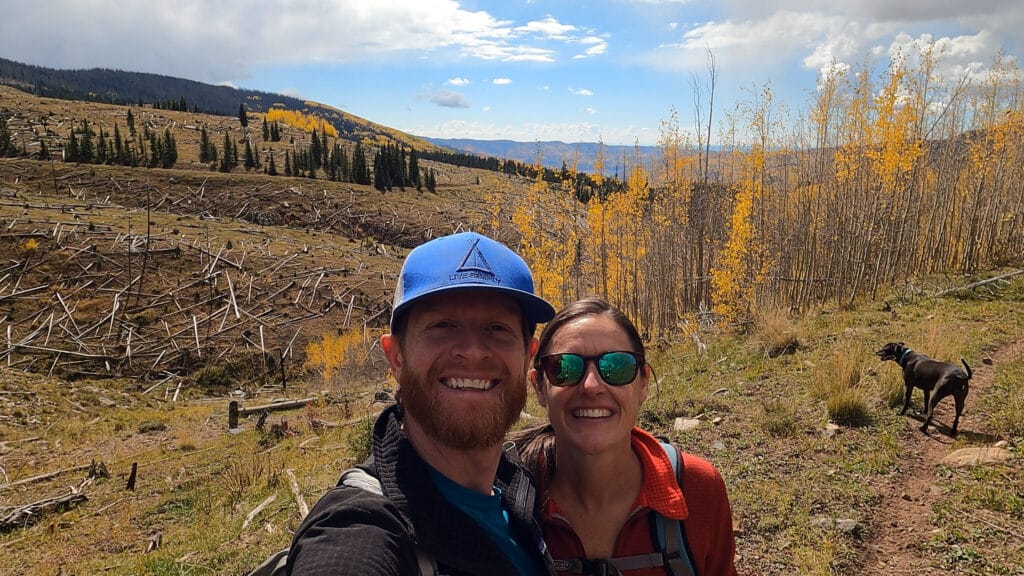
PREPARE FOR THE LACK OF PERSONAL SPACE
On the difficult side, there’s nowhere to hide. In a small living space, you can easily feel when each other’s emotions escalate.
My recommendation is that when there’s even the slightest bit of discontent, immediately have a calm conversation. Learn to respect the other person and their needs because their happiness equals your happiness.
You have to be a team and you have to work together. The tiny space you’ve chosen to share will force collaboration and compromise. I think this is a great gift for any relationship.
Benefit #5: Learn to Live with Uncertainty
“The quality of your life is in direct proportion to the amount of uncertainty that you can comfortably live with.” This is a famous quote about cultivating happiness by Tony Robbins, as taught in his personal development coaching and seminars.
I love that RV life ensures that I will reliably encounter some uncertainty every single week.
Mobile living or full-time travel means that you never know where you’re going, and without GPS you’d get lost going to the grocery store.
Having a mobile home means that things break (all. the. time.). Plus, you’re always seeing and doing new things that constantly push you to grow and feed your curiosity.
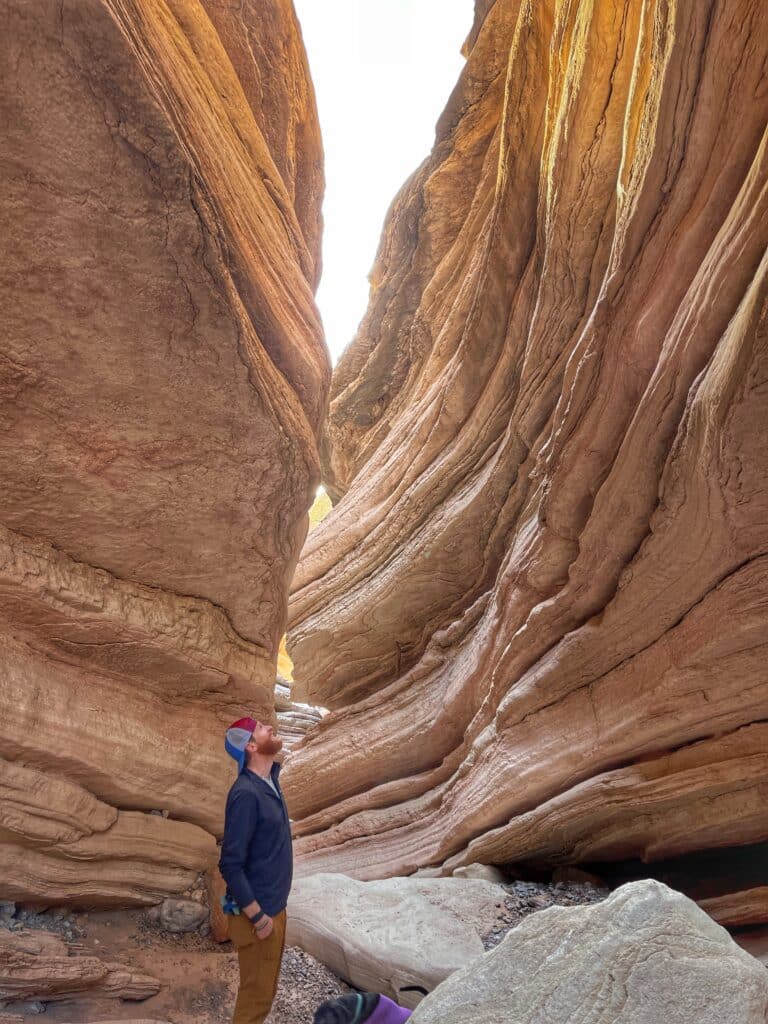
Nothing else in my life has taught me how to live with uncertainty better than RVing. Is it comfortable? Not really, especially in the beginning, but it becomes more comfortable.
You become better at navigating uncertainty. It’s honestly like a muscle that you must develop.
I’m forever grateful that RV living has helped me strengthen this critical muscle, and therefore improve the quality of my life.
Benefit #6: Develop Self-Reliance
In order to keep your mobile home rolling, you are constantly learning new skills. You’re a navigator, a repairman, and a travel planner all in one.
Being on the road sometimes means you’re without your normal support system: the mechanic you trust, your dad as a backup for repair issues, etc.
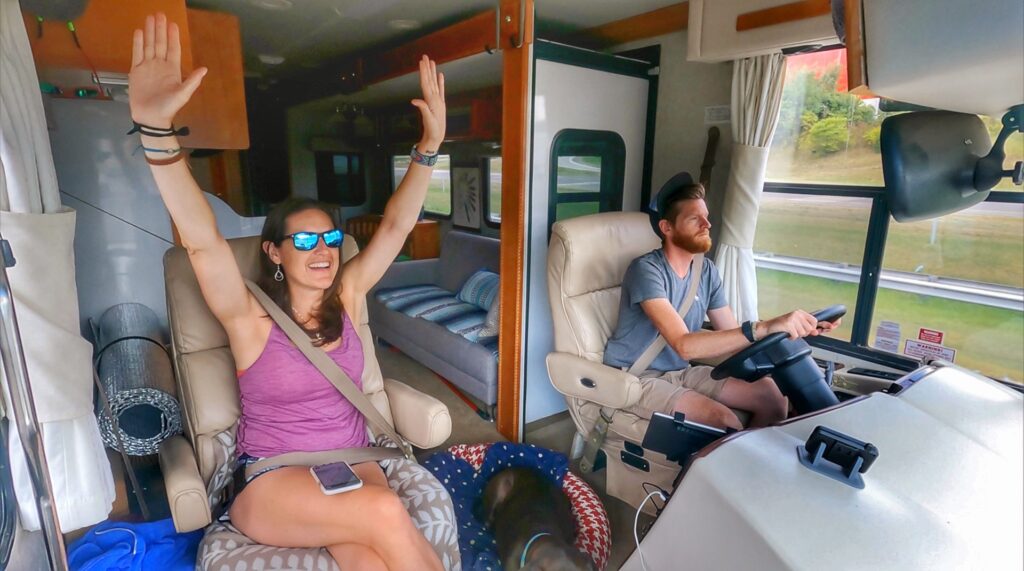
Rather than researching mechanics in the area where you’re currently located, and trying to get an appointment before you leave for the next destination, it’s often easier (and far less expensive) to handle things yourself.
Self-reliance actually becomes the better option, and you learn and grow as a human so much along the way.
Benefit #7: Leave a Smaller Footprint
Tiny homes have a tiny footprint. This chosen lifestyle uses less water, power, and heat. In addition to any efficiencies built into the design of a tiny home, the footprint is so much smaller than the average house. Accordingly, less resources are consumed.
I could write an entire article about the environmental benefits of tiny houses, but for today let’s take a look at just one aspect: no lawn.
OH, THE WATER WE USE!
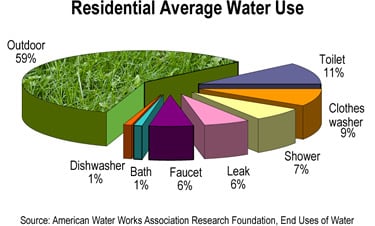
With tiny living in an RV, you will not have a lawn to maintain, so right off the bat, you’ll be reducing your water use by 60 percent. Can you believe 60 percent of household water use in dry climates goes to watering the lawn?
In a single year, Los Angeles used enough water irrigating lawns to meet the water needs of nearly a half-million average households for twelve months.
What’s worse, lawnmowers account for 5 percent of the US’s air pollution. And it’s estimated that each year more than 17 million gallons of fuel are spilled while refueling lawn equipment (the Exxon Valdez oil spill was 10.8 million gallons, for comparison).
Now, some people give us a hard time for our fossil fuel consumption since we drive a motorhome. But we move slowly and like to stay places for 2-4 weeks at a time, and we generally stay in the western half of the US.
Overall, I know that our footprint is less than our life in a sticks-and-bricks home with two cars, two commutes, and a big lawn to maintain. And that feels good.
Final Thoughts on Benefits of Tiny Homes
As with anything in life, there are tiny house advantages and disadvantages. Today, I’ve tried to focus on the hidden benefits of a tiny home, and how living small can improve your life in unexpected ways.
I learned everything I ever needed to know about how to have a happy life, from living in about 300 square feet.
As I think about living in a house again someday, I know I will take the principles around consumerism, finances, relationships, and conservation with me into whatever home I choose next. It’s a gift that will always be with me.
Wishing you profound happiness in your tiny living adventure. And remember, the journey is far more important than the destination, so enjoy each mile!
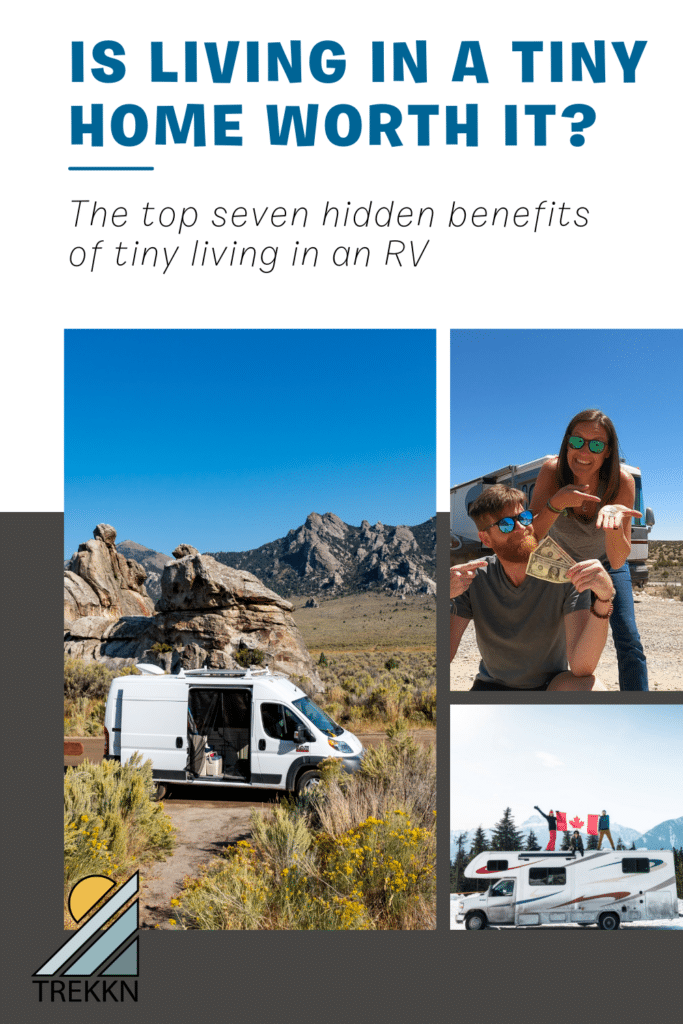
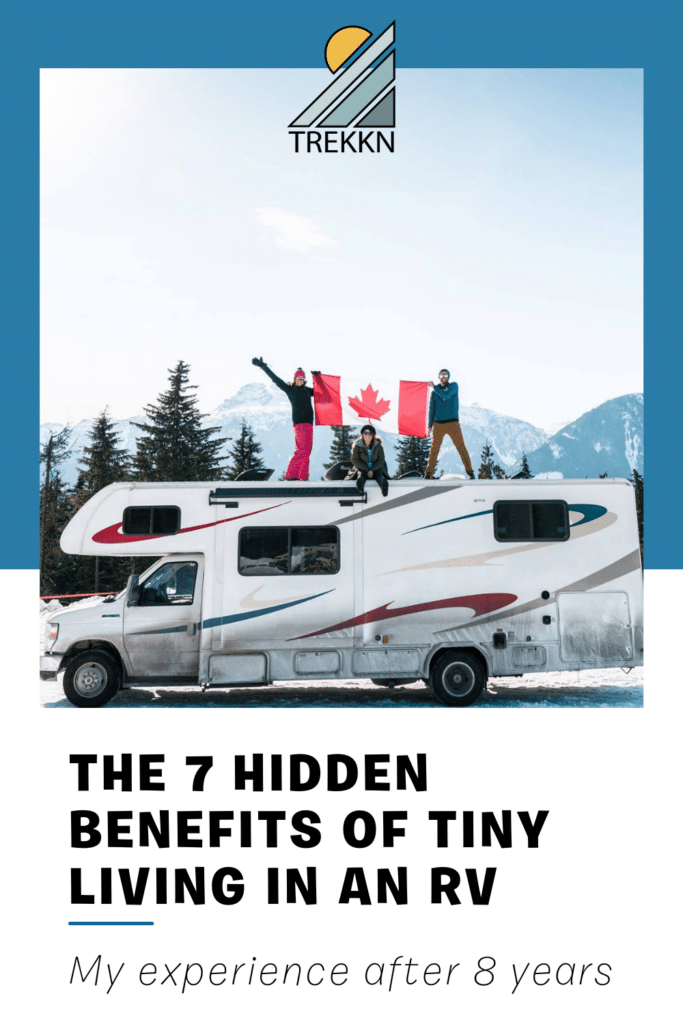
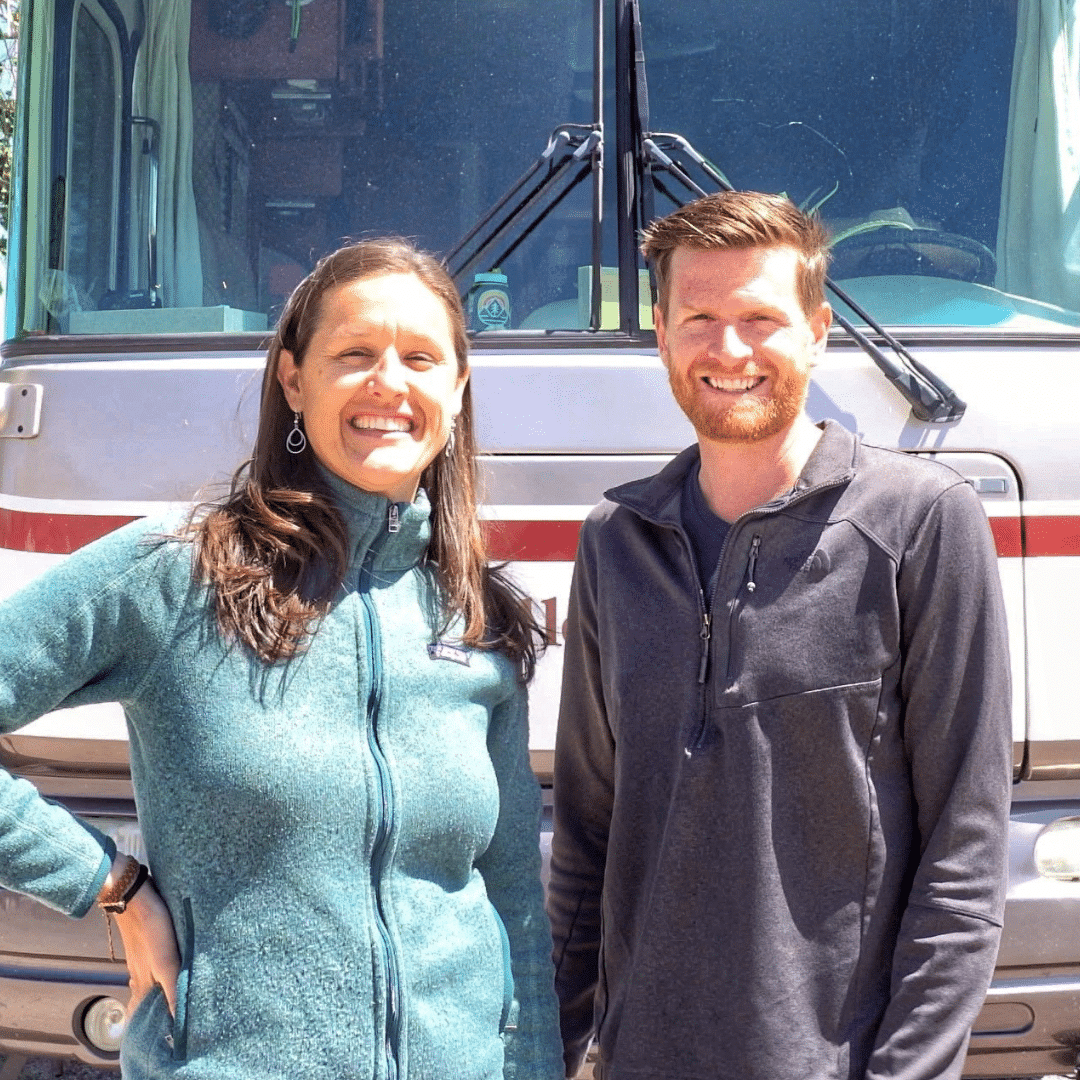
Kristen Bates lives & works from her RV, primarily boondocking off-grid. She owns and operates a women-led travel company, Legit Trips. Kristen loves to explore new places and inspire others to do the same. If she’s not typing away on her laptop, she’s off on an adventure- hiking, biking, or SUP boarding. You can follow her RV adventures @PerpetualMoves and learn more about her travel company at LegitTrips.com.


